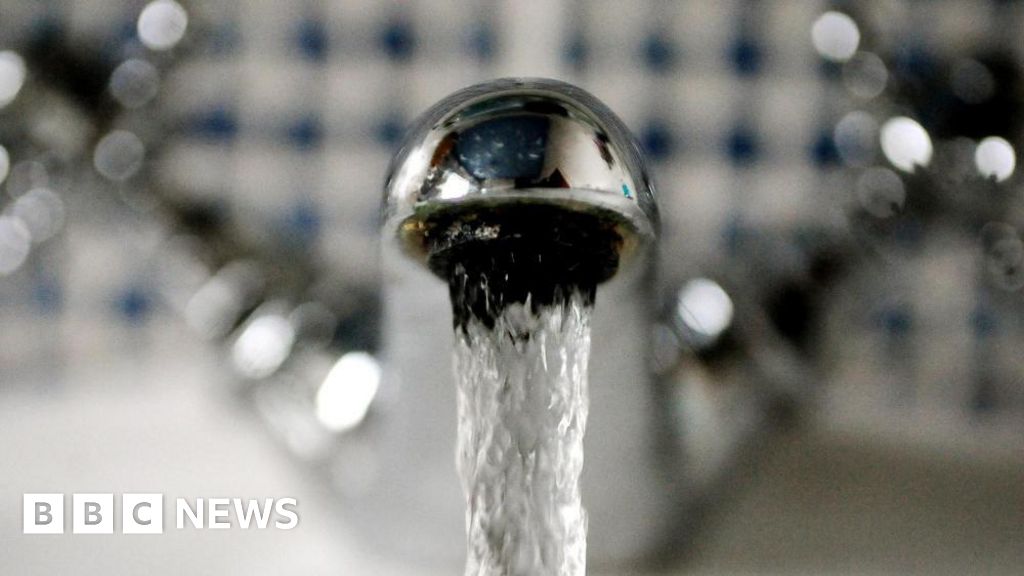England’s water companies got their worst ever combined score for environmental performance in 2024, the Environment Agency has said.
All but one of the nine English water and sewerage companies were rated as “requiring improvement” – or worse – by the EA, in a year where serious pollution incidents rose by 60% versus 2023.
Thames Water – the UK’s largest water company – was given the lowest one-star rating.
Industry body Water UK acknowledged that “the performance of some companies is not good enough” but pointed to investment since last year.
A Thames Water spokesperson said: “Transforming Thames is a major programme of work that will take time; it will take at least a decade to achieve the scale of change required.”
And Environment Secretary Emma Reynolds acknowledged: “We are facing a water system failure that has left our infrastructure crumbling and sewage spilling into our rivers.
“We are taking decisive action to fix it, including new powers to ban unfair bonuses, and swift financial penalties for environmental offences,” she added.
In a foreword to the report, the EA’s chair, Alan Lovell, wrote: “Many companies tell us how focussed they are on environmental improvement. But the results are not visible in the data.”
The EA’s collective rating of the nine companies for 2024 was 19 stars – down from 25 stars in 2023. No year had previously got fewer than 22 stars.
Only Severn Trent got the top rating of four stars. All others got two stars – “requiring improvement” – except Thames which got one star for “poor” performance.
Thames Water – the UK’s largest water company – has become mired in financial trouble. It reported a loss of £1.65bn for the year to March, while its debt pile climbed to £16.8bn.
“We know we need to further improve for our customers, communities and the environment, and that is why we have embarked on the largest ever investment programme, delivering the biggest upgrade to our network in 150 years,” the Thames spokesperson added.
Every year since 2011 each of England’s nine water companies have been given a rating for their environmental performance. Only seven one-star ratings have ever been previously given.
The EA says its assessment criteria has been tightened over time, so its ratings do “not mean performance has declined since 2011” and it had seen “some improvement” up to 2023.
“This year’s results are poor and must serve as a clear and urgent signal for change,” said Mr Lovell.
In a separate report on companies in England and Wales, the economic regulator Ofwat described performance across different measures as “mixed”.
It acknowledged progress in some areas like internal sewer flooding, but said “there remain areas where companies and the sector must do more”, including pollution and supply interruptions for some.
In response, James Wallace, chief executive of campaign group River Action UK, said: “Today’s report shows that water companies in England and Wales are still underperforming, especially on serious pollution incidents, exposing the bankruptcy of the privatised water model.
“We urgently need a complete overhaul of this failed system to ensure that bill payers receive a fair service and that our rivers are properly protected from pollution.”
The EA attributed last year’s environmental performance to three factors – wet and stormy weather, long-standing underinvestment in infrastructure, and increased monitoring and inspection “bringing more failings to light”.
From 2027, the EA will replace its current star ratings with a new system – a scale from one to five, from “failing” to “excellent”.
The government argues this will give a more accurate reflection of performance, with companies not able to achieve the top rating unless they “achieve the highest standards across the board”.
The water industry has faced mounting anger from customers and campaigners for rising bills and repeated sewage spills.
The Environment Agency reported in July that “serious” pollution incidents had increased by 60% in 2024 versus 2023.
And in April, bills rose by an average of 26% in England and Wales, after the economic regulator Ofwat approved water company plans for billions of pounds of investment.
Bills will continue to rise to 2030 to help upgrade water supplies and reducing the amount of sewage being spilled.
Earlier this year the government said that Ofwat would be scrapped and replaced by a single regulator.
That followed a landmark review of the “failing” water sector in England and Wales, which recommended stronger regulation to hold water companies to account. It warned that there would be no quick fixes to improve the state of our rivers or bring down bills.
In response to today’s EA’s report, Mike Keil, chief executive of the Consumer Council for Water, said: “Customers are now paying more than ever before through water bills and they will expect to see companies delivering on their promises to cut pollution and help bring rivers, lakes and wildlife habitats back to life.
“If the industry fails to deliver, the damage to public trust – which is already at an all-time low – may be unrecoverable,” he added.
Additional reporting by Jonah Fisher

